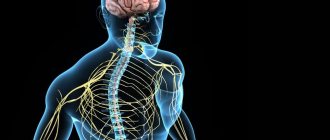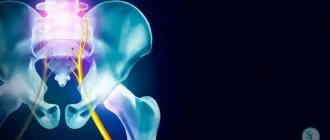One type of psycho-emotional disorder is astheno-depressive syndrome. The pathological condition is accompanied by a loss of all interest in life. A person with this disorder constantly faces difficulties in making even the simplest decisions. This syndrome precedes depression, which it can develop into if medical care is refused.
The disease does not have its own ICD-10 code, since this condition is not classified as a separate diagnosis. At the same time, it is classified into different categories, which include the international classification of diseases. The pathology is most often classified as other neurotic disorders, which are listed in the international classification of diseases under the code F48.
Astheno-depressive syndrome is considered to be a condition that is classified as a group of affective disorders of an atypical type. In various publications it is called asthenic depression or exhaustion depression. Pathology can significantly worsen a person’s life. Without adequate treatment, it can develop into more serious mental problems that are difficult to treat. During the course of astheno-depressive syndrome, the systems and internal organs of a person function at the limit of their capabilities. Therefore, they periodically fail, which is why the patient exhibits characteristic symptoms of malaise.
Specialists at the Yusupov Hospital treat many psycho-emotional disorders, including asthenic-depressive syndrome. Using an integrated approach to diagnosis and treatment allows the clinic’s doctors to find the true causes of the disease. Honored doctors with the highest category work within the walls of the hospital, who are constantly improving in their field of activity. The developed methodology, together with leading doctors in Russia and Europe, always achieves the desired goal.
How to determine if you have depression?
Pathology may appear after experiencing stressful situations. If there is no disorder, after the problem is resolved, the person returns to a good mood. But when the cause has been eliminated, and the person continues to feel apathy, depression and loss of strength, it is necessary to seek help from a specialist. Performance may also decrease.
You can determine the presence of depression yourself, but you should not self-medicate even at an early stage of development. This should be done by a doctor, since self-medication can only make things worse.
Depression in women often occurs postpartum, as their lives change dramatically, and sleepless nights add to their fatigue. This is where breakdowns and apathy appear.
When the pathology is in an advanced form, a person experiences the following symptoms of depression - not only bad mood and impotence, but also persistent disorders of the nervous system. There are also symptoms such as: a significant decrease in self-esteem, maladjustment in society, despondency and loss of interest in any events.
Physiologically, appetite changes, intimate needs and energy decrease, sleep and intestinal functions are disturbed (constipation, weakness, fatigue during physical and intellectual stress are observed), pain in the body (in the heart, in the muscles, in the stomach).
The patient exhibits signs of depression such as loss of interest in other people, a tendency to frequent solitude, refusal of entertainment, use of alcohol and psychotropic substances.
Mental signs of depression include difficulty concentrating, concentrating, making decisions, slowness of thinking, a pessimistic view of the future with a lack of perspective and thoughts about the meaninglessness of one's existence, suicide attempts, due to one's uselessness, helplessness, and insignificance.
Recurrent depressive disorder
Recurrent (from the Latin recuro - run back, come back) or recurring (repeating) depressive disorder (ICD-10 - F33) is characterized by repeated depressive episodes, with no history of individual episodes of high mood and hyperactivity. Severe forms of recurrent depressive disorder correspond to the previously used term: depressive type of manic-depressive psychosis (melancholia).
Recurrent depressive disorder can begin at any age, but usually begins after the age of twenty. Without treatment, it can last for months and years, with therapy it can go away within 2-3 months, however, if maintenance therapy is stopped for at least 6-9 months (which happens quite often), depression can recur again.
Some researchers include the so-called recurrent depressive disorder. Seasonal affective disorder, in which episodes of depression occur depending on the time of year. At the same time, there is a point of view according to which seasonal depression depends not so much on the time of year, but on the number of sunny days.
Causes of depression
The appearance of the disorder is not affected by age category or social class. Most often, depression appears against the background of stressful negative situations, with constant failures - then a person falls into despair from the inability to somehow influence the course of events.
But in addition to the social factor, severe psychological trauma can also lead to the development of depression, for example: family breakdown, death of a loved one, serious illness that affects not only the patient himself, but also his relatives. In this case, depression is called reactive.
The likelihood of depression increases with hormonal changes: during adolescence, after childbirth, with the onset of menopause, and also in old age. Can affect you emotionally and physically.
Another factor is brain damage and somatic pathologies. Patients who have suffered a stroke, suffer from a chronic lack of blood circulation in the brain, or after a traumatic brain injury often suffer from depression.
The causes of depression can manifest themselves as a result of side effects of medications (benzodiazepines, corticosteroids). Often this condition disappears on its own after stopping the medication.
Dysthymia
Among the clinical variants of depression, classifications include its mild but persistent form - dysthymia. With dysthymia, one can state a gloomy mood, a feeling of unmotivated hostility towards loved ones, constant internal dissatisfaction and irritation, reflecting character traits that overreact to external difficulties (Tiganov A.S., 1974). There is a form of dysthymia with a predominance of various pain sensations and fatigue.
With dysthymia, constant depression persists for at least two years and with no more than a two-month break. Typical for her are: a constantly gloomy mood, “eternal” irritability or anxiety. Most life events are interpreted from a negative point of view; there are frequent complaints about poor health and condemnation of people around. Patients suffering from dysthymia may experience short periods of well-being, but these are usually limited to a few days or weeks. Patients are prone to gloomy thoughts. They complain that they sleep poorly and feel uncomfortable, but in general cope with the basic demands of daily life.
It should be noted that among individuals suffering from dysthymia, the risk of one or more major depressive episodes is 90% (Keller M., 1988).
Dysthymia or “minor depression” is a chronic depressive disorder. This pathology is more common than severe depression, but is detected quite rarely. Even in civilized countries, most people seek specialized help about 10 years after the onset of this disease.
The well-known resistance of dysthymia to treatment is probably due to its close intertwining with the personality characteristics of patients. Up to 25% of people suffering from this pathology belong to the group of treatment-resistant patients. The importance of dysthymia is also due to the fact that this condition is usually combined with other mental illnesses: neurotic disorder, personality disorder, mental disorders in children, for example, attention disorder with increased activity, mental retardation.
Dysthymia accompanies such chronic neurological and somatic diseases as multiple sclerosis, irritable bowel syndrome, acquired immunodeficiency syndrome, hypothyroidism, etc. Given the high frequency of occurrence, manifestations of dysthymia are especially relevant in elderly somatic patients. The phenomenon of somatization of dysthymia in the elderly is well known. Against the background of constant pain or cancer, dysthymia develops especially easily. Dysthymia is also not uncommon among people who abuse alcohol or drugs. Dysthymia is registered in the structure of remission in recurrent depression or schizophrenia. At the same time, dysthymia can develop as a result of a single depressive episode.
It is now generally accepted that dysthymia is largely a hereditary disease, since relatives suffering from this disorder often have affective pathology.
Currently, many psychiatrists classify almost the entire range of disorders previously described as neurotic depression within the framework of dysthymia (“depressive neurosis”, “minor depression”). At the same time, there is a point of view according to which neurotic depression is traditionally understood as a psychogenic disease in the form of prolonged depression, characterized by a depressed mood with “dull melancholy” without a vital shade and projection into the future; absence of true fluctuations in affect, psychomotor retardation; sleep disorders in the form of waking up in the middle of the night with anxiety (Lakosina N.D., 1974).
In clinical psychology, the term dysthymia is sometimes used to refer to a group of affective and obsessive states in people with high levels of neuroticism and introversion.
There are primary dysthymia with early onset (before 21 years) and late onset (after 45 years), as well as secondary dysthymia accompanying neurotic disorders (Akiskal H., 1983). Dysthymia, especially in children (the onset of this disease usually dates back to childhood and adolescence), can easily develop into a more severe mental disorder; approximately 50% of people with signs of dysthymia develop bipolar depression or experience a moderate depressive episode.
Types of depression
- Neurotic – people with low self-esteem, insecure, and straightforward people often suffer. They constantly experience a sense of injustice, and this is where apathy arises.
- Clinical – bad mood, loss of energy, problems with appetite and sleep. Suicidal tendencies are often observed. This clinical picture can last at least 2 weeks.
- Vegetative – manifested by such symptoms as tachycardia, drop in blood pressure, tinnitus.
- Psychogenic - develops after severe psychological trauma - divorce, loss of a loved one, dismissal from work, betrayal, etc. Accompanied by mood swings, anxiety, and excessive sensitivity.
- Masked - often the disease manifests itself secretly. Apathy, solitude and decreased interest in life can only appear as negativity and fatigue accumulate.
- Asthenic – the condition is manifested by fatigue, sleep disturbance, emotional imbalance due to accumulated difficulties, stress, physical and psychological stress.
- Postpartum – usually occurs 10-14 days after delivery. The young mother shows an increased sense of excitement for the baby, and constant lack of sleep and fatigue further worsens the situation. In addition, the mother's condition is also affected by hormonal levels.
- Somatogenic – attacks occur due to disturbances in the endocrine system, the formation and proliferation of neoplasms, both benign and malignant.
- Alcoholic depression – depression is accompanied by excessive consumption of alcoholic beverages. The post-alcoholic state is accompanied by an uncontrollable craving for alcohol and an increase in withdrawal symptoms when giving up alcohol.
- Bipolar – the patient experiences a change from euphoria to a depressive, manic disorder. But in the period between these phenomena, caused by various factors: stress, loss of means of popularity, etc., a person lives a normal life and does not show symptoms of the disease.
Who is susceptible to astheno-depressive syndrome?
Astheno-depressive syndrome, for which special treatment is selected, most often occurs in people who have a predisposition to it. We are talking about people who are at risk. These include:
- Representatives of creative professions;
- Persons holding leadership positions;
- Adults and children who are prone to developing mental illness;
- Patients with inflammatory diseases that are chronic.
People who are at risk should take more responsibility for their physical and mental health. Otherwise, it will be difficult for them to avoid astheno-depressive syndrome.
How does depression develop in stages?
At first, the patient experiences a depressed state, which he himself attributes to fatigue, a hard work week, drinking alcohol and other reasons. At the same time, he wants to retire from others and at the same time is afraid of being left alone.
Then the stage of acceptance occurs: awareness of a dangerous condition occurs, the problem gets worse, the intensity of negative thoughts increases, the body and immune system malfunction.
The third stage - in the absence of adequate therapy, the patient loses control over himself, aggression increases.
Cyclothymia
Cyclothymia is not pronounced fluctuations in mood. For decades, this disease was absorbed by neurasthenia and hysteria (Osipov V.P., 1931). The comprehensive development of the doctrine of cyclothymia belongs to Kannabikh Yu.V. (1914).
Cyclothymia is characterized by short cycles over several days, with inhibited depression giving way to increased activity, high spirits and irritability, and a decreased need for sleep. Bipolar tendencies in cyclothymia may manifest as ease of mood swings after treatment of depression with antidepressants.
Return to Contents
Diagnosis and treatment of depression
—
To identify the disease, experienced specialists use short questionnaires - screening tools to identify symptoms: anxiety, anhedonia (loss of pleasure in life), suicidal tendencies. Thanks to this, it is possible to determine whether the patient has chronic depression, symptoms and methods of treating depression, what form it is and its severity.
To fully understand the picture of the disease, the doctor needs to become familiar with the symptoms that indicate depression, and not another psychological disorder.
To treat depression, you can contact the following specialists:
- Psychiatrist - treatment of depression with hypnosis, medications for acute mental pathologies - schizophrenia, mental retardation, epilepsy, as well as other less severe illnesses - neuroses, depression, alcoholism, drug addiction, etc.
- Psychotherapist - treatment is carried out through special therapy, which involves explanations, conversations, and searching for solutions to problems together with the patient.
- Psychologist – advises the patient, cannot prescribe medications or examinations. Clinical psychologists use modern testing methods to identify problems that cause psychological disorder.
The main directions of therapy in treatment are psychotherapy, pharmacotherapy, social therapy.
Cooperation and trust in the doctor are noted as a necessary condition for the effectiveness of treatment. It is important to strictly follow the prescribed treatment regimen, visit your doctor regularly, and give a detailed report of your condition.
Diagnosis of astheno-depressive syndrome
Adults and children with severe symptoms of astheno-depressive syndrome must undergo diagnostics. You should consult a doctor, even if the signs of the disorder are still mild. Patients suspected of having this disease should be examined in the office of highly specialized specialists. We are talking about an endocrinologist, neurologist, gastroenterologist and urologist. For depression, it is recommended to consult a psychotherapist. He will determine the root cause of the disorder and tell you how to treat it. Consultation with highly specialized doctors is required in order to identify the presence of chronic pathologies that could have an impact on the development of astheno-depressive syndrome. If no organic causes of the disease are identified in a person, then further diagnosis will be carried out by a psychotherapist. He must talk to the patient. During the collection of anamnesis, he will be able to find an explanation for the manifested symptoms of the syndrome.
The Yusupov Hospital has a modern diagnostic facility, and specialists treat patient complaints carefully and thoughtfully. Yusupov Hospital is a multidisciplinary treatment center where every person is guaranteed comprehensive and highly qualified treatment.
Drugs to treat depression
—
To treat the disorder, antidepressants are used for anxious depression or when the pathology is accompanied by lethargy. Antidepressants are prescribed directly by a doctor and are not recommended to be taken on your own. The effect of many antidepressants appears two weeks after administration; their dosage for the patient is determined individually.
Bipolar depression is treated with insomnia. While it has a negative effect on a healthy person, in a patient with a psychological disorder, sleep deprivation, on the contrary, brings the psyche back to normal.
Moderate or mild forms of depression require the prescription of drugs on a light, natural basis (herbal).
Affective bipolar disorder
Affective bipolar disorder (F31), as part of the classification of depressive disorders, was previously designated by the term manic-depressive psychosis (Krepelin E., 1921). In the 60s of the twentieth century, the term “bipolar” was introduced. According to the American DSM-VI classification, this diagnosis requires a history of an episode of mania for at least a week. The modern concept of bipolar disorders includes in this concept not only bipolar disorders of various types, but also cyclothymia and hyperthymia.
This mental disorder is largely determined by the constitutional characteristics of a person and is a chronic mental illness. At the same time, periods of remission can be quite long and last for years (the onset of the disease often begins in adolescence and usually with the depressive phase).
Recurrent depressive disorder (recurrent depression) is characterized by a cyclical course. According to some scientists, approximately 10-20% of patients who have suffered a severe depressive episode subsequently develop bipolar disorder. According to other researchers, a second depressive episode occurs in 75-80% of cases within 4-6 months after the first. The transition from recurrent depressive disorder to a bipolar type of course (periodic alternation of depressive and manic phases) is noted in 5-20% of cases. In 50% of cases this occurs after the first depressive episode, in the rest - after 2-4. Bipolar disorder usually takes about 5 years between the first episodes, and later they may recur annually.
Bipolar depression is characterized by a relationship with personality characteristics (tendency to cyclothymia), onset in adolescence and young adulthood (the onset of the disease often begins with the depressive phase), the onset of depression after childbirth and frequent relapses of the disease. Bipolar disorders are characterized by episodes of psychosis, increased drowsiness, and severe adynamic depression. Unfortunately, the start of treatment for this mental disorder is often delayed due to late diagnosis of the disease.
Depressive-neurotic syndrome
The main cause of depressive-neurotic syndrome is a protracted form of neurosis.
The signs of depressive-neurotic syndrome are somewhat different from other forms of the disease in the mildness of the course and the presence of self-awareness, the desire to correct and take actions to correct the existing defect. In addition, during the course of the disease, the presence of phobias and obsessions, and sometimes manifestations of hysteria, are noted.
In addition, this type of syndrome is characterized by an ambivalent attitude towards suicidal thoughts, preservation of basic personality traits and awareness of one’s illness.








